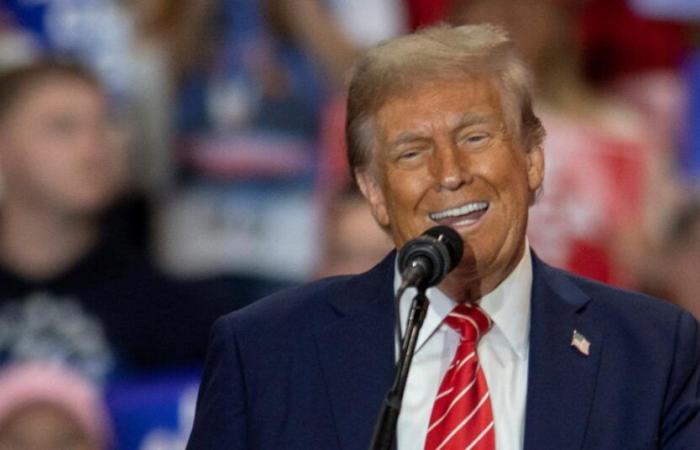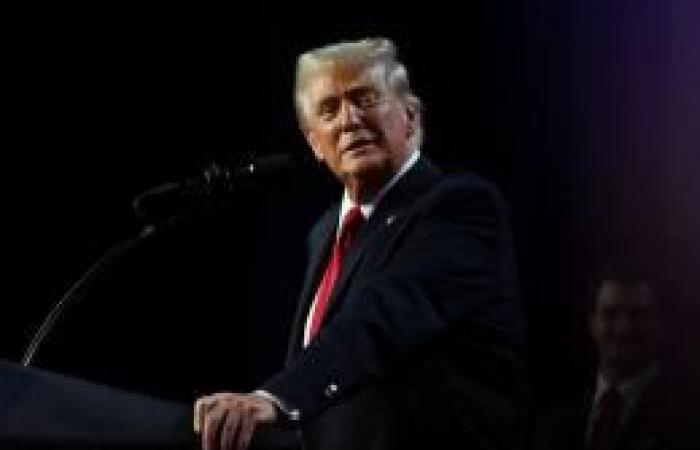COP29, organized in a country that is the cradle of oil a year after the COP in Dubai, opened on Monday with vibrant calls for international cooperation. Everyone expects that next year Donald Trump’s United States will become the only country to twice exit the flagship climate agreement adopted in Paris in 2015.
The emissary of Democratic President Joe Biden, John Podesta, may have assured Monday that states, cities or American companies would continue to act to compensate for the expected federal decline, the early exit of the world’s second largest polluter weakens the words of its negotiators, and by extension the front of developed countries supposed to commit to giving more money to developing countries.
Donald Trump places his relatives in key positions in his future government
“This is not the end (…) The fight goes beyond an election or the electoral cycle of a country,” argued John Podesta.
The Europeans certainly made it possible to persevere. But they are not rushing in Baku.
Emmanuel Macron, Olaf Scholz and the president of the European Commission are absent from the summit on Tuesday and Wednesday. The EU will notably be represented by the Hungarian Viktor Orban, who holds the rotating presidency of the Council, Andrzej Duda (Poland), Pedro Sanchez (Spain) and Giorgia Meloni (Italy).
Only a few G20 countries will be represented by a head of state or government, including the United Kingdom with its Labor Prime Minister Keir Starmer, expected to make a new commitment to reduce greenhouse gases.
“It is very important that the United Kingdom shows leadership,” he told reporters in Baku on Tuesday morning. Mr Starmer said he was “glad to work with President Trump, of course, as we do with all international leaders”.
Toughest negotiations since 2015
Some 50,000 participants are expected over the two weeks of COP29, in the Olympic stadium in Baku, on the shores of the Caspian, a sea in which Azerbaijan plans a strong expansion of its natural gas production.
At the end of a sluggish first day on Monday, the nearly 200 countries gathered ended up adopting a first decision late in the evening: the first major UN rules, supposed to establish a reliable market for carbon credits, until here without international regulation and subject to abuse, fraud and “greenwashing”.
Developing countries, with China and India, also fought behind the scenes over the agenda, a standoff very symbolic of the tensions between North and South, which will be the theme of this entire COP.
Certainly, between Trump’s re-election, the first day delay and the absence of several major leaders, “it’s not an ideal situation. (…) But in 30 years of COP, this is not the first time that we have faced obstacles” and “everything is still entirely possible,” the Canadian Minister of Defense told AFP on Tuesday. Environment, Steven Guilbeault.
It is the question of money that will occupy the delegates night and day until November 22.
Climate aid is used to build solar power plants, improve irrigation, build dikes or help farmers deal with droughts.
Today at 116 billion dollars per year (in 2022), this financing must be increased more than tenfold in the coming years, according to the poor countries. Amounts that Western countries consider unrealistic for their public finances.
“These will not be easy negotiations, perhaps even the most difficult since Paris,” commented German negotiator Jennifer Morgan.
An opinion shared by Fernanda Carvalho, from WWF. “It’s going to be a complicated COP,” she told AFP, pointing to the divisions between countries and the “lack of trust.”
Leaders of poor countries hit this year by climate disasters, particularly in Africa and the Asia-Pacific, will parade in large numbers at the podium for two days.
Belgium







